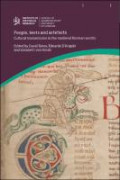
People, texts and artefacts:cultural transmission in the medieval Norman worlds
This volume is based on two international conferences held in 2013 and 2014 at Ariano Irpino, and at Emmanuel College, Cambridge. It contains essays by leading scholars in the field. Like the confe…
- Edisi
- -
- ISBN/ISSN
- 9781909646568
- Deskripsi Fisik
- xvii, 284 pages : illustrations (chiefly color) ; 25 cm
- Judul Seri
- -
- No. Panggil
- 940.146 PEO p
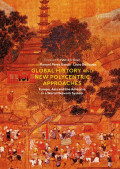
Global history and new polycentric approaches :Europe, Asia and the Americas …
Rethinking the ways global history is envisioned and conceptualized in diverse countries such as China, Japan, Mexico or Spain, this collections considers how global issues are connected with our l…
- Edisi
- -
- ISBN/ISSN
- 9789811040535
- Deskripsi Fisik
- xxx, 352p. : ill.
- Judul Seri
- -
- No. Panggil
- 901 GLO g
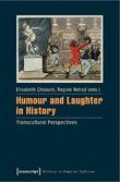
Humour and laughter in history transcultural perspectives
Humour can be used as a »weapon« or as a means of coping with problematic historical events, especially in times of war and crisis. The book presents examples from different cultures (Russia, Eur…
- Edisi
- -
- ISBN/ISSN
- 9783837628586
- Deskripsi Fisik
- 137 p.; 22 cm.
- Judul Seri
- -
- No. Panggil
- 909 HUM h
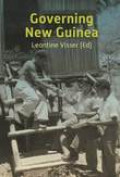
Governing New Guinea; an oral history of Papuan administrators, 1950-1990
This is the first time that indigenous Papuan administrators share with an international public their experiences governing their country. These administrators were the brokers of development. Afte…
- Edisi
- -
- ISBN/ISSN
- 9789067183932
- Deskripsi Fisik
- x, 358 p.; 22 cm.
- Judul Seri
- -
- No. Panggil
- 995.304 GOV g
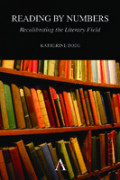
Reading by numbers :recalibrating the literary field
Reading by Numbers: Recalibrating the Literary Field’ is the first book to use digital humanities strategies to integrate the scope and methods of book and publishing history with issues and deba…
- Edisi
- -
- ISBN/ISSN
- 9780857284549
- Deskripsi Fisik
- ix, 237 p.; 22 cm.
- Judul Seri
- -
- No. Panggil
- 820.9’994 BOD r
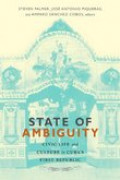
State of ambiguity
Cuba's first republican era (1902–1959) is principally understood in terms of its failures and discontinuities, its first three decades and the overthrow of Machado seen at best as a prologue to …
- Edisi
- -
- ISBN/ISSN
- 9780822356301
- Deskripsi Fisik
- 376 p.; 23 cm.
- Judul Seri
- -
- No. Panggil
- 972.9105 STA s
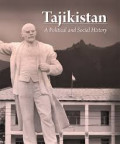
Tajkistan:a political and social history
This book is a historical study of the Tajiks in Central Asia from the ancient times to the post-Soviet period. For millennia, these descendants of the original Aryan settlers were part of many dif…
- Edisi
- -
- ISBN/ISSN
- 9781925021165
- Deskripsi Fisik
- -
- Judul Seri
- -
- No. Panggil
- 958.6086 NOU t
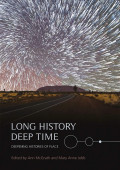
Long history, deep time. Deepening histories of place
The vast shape-shifting continent of Australia enables us to take a long view of history. We consider ways to cross the great divide between the deep past and the present. Australia’s human past …
- Edisi
- -
- ISBN/ISSN
- 9781925022520
- Deskripsi Fisik
- 241 p.; 22 cm.
- Judul Seri
- -
- No. Panggil
- 994.0049915 LON l
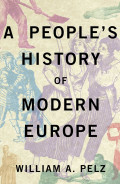
A People's history of modern Europe
From the monarchical terror of the Middle Ages to the mangled Europe of the Twenty-first Century, A People's History of Modern Europe tracks the history of the continent through the deeds of those …
- Edisi
- -
- ISBN/ISSN
- 9781783717675
- Deskripsi Fisik
- 289 p.; 22 cm.
- Judul Seri
- -
- No. Panggil
- 909.08 APE p
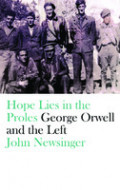
Hope lies in the proles:George Orwell and the Left
George Orwell was one of the most significant literary figures on the left in the twentieth century. While titles such as 1984, Animal Farm and Homage to Catalonia are still rightly regarded as mod…
- Edisi
- -
- ISBN/ISSN
- 9781786801890
- Deskripsi Fisik
- Northampton, England
- Judul Seri
- -
- No. Panggil
- 828.91209 NEW h
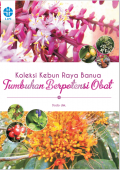
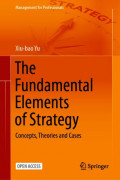
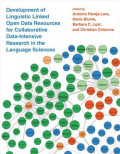
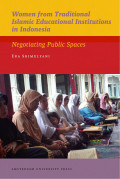
 Karya Umum
Karya Umum  Filsafat
Filsafat  Agama
Agama  Ilmu-ilmu Sosial
Ilmu-ilmu Sosial  Bahasa
Bahasa  Ilmu-ilmu Murni
Ilmu-ilmu Murni  Ilmu-ilmu Terapan
Ilmu-ilmu Terapan  Kesenian, Hiburan, dan Olahraga
Kesenian, Hiburan, dan Olahraga  Kesusastraan
Kesusastraan  Geografi dan Sejarah
Geografi dan Sejarah